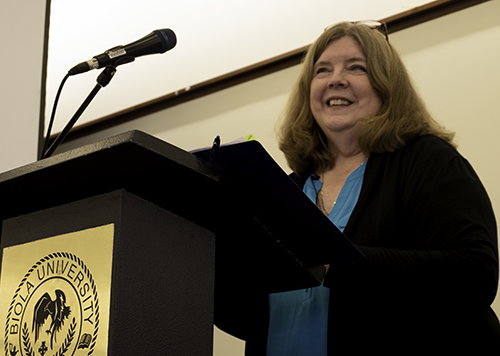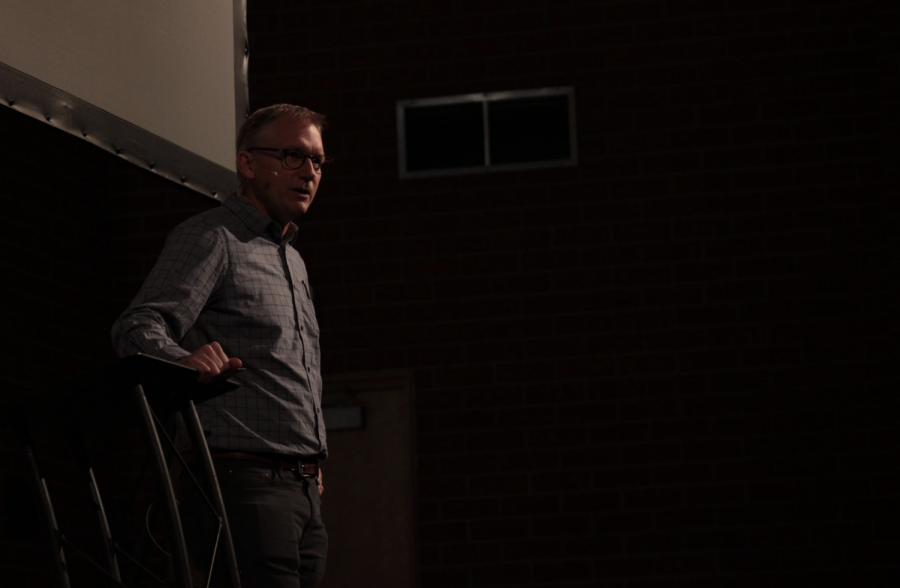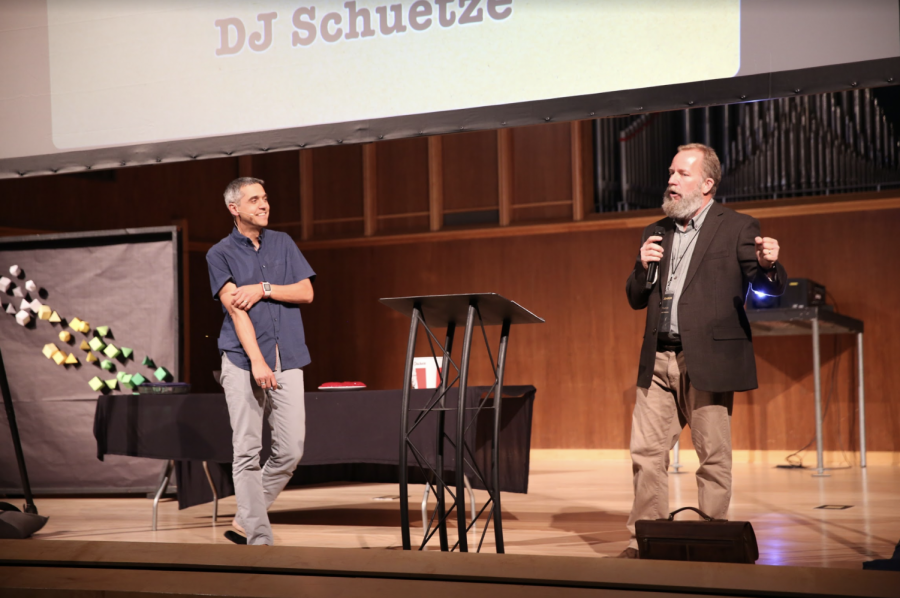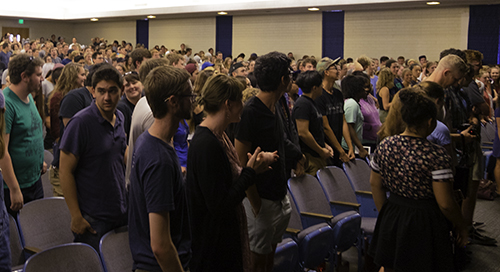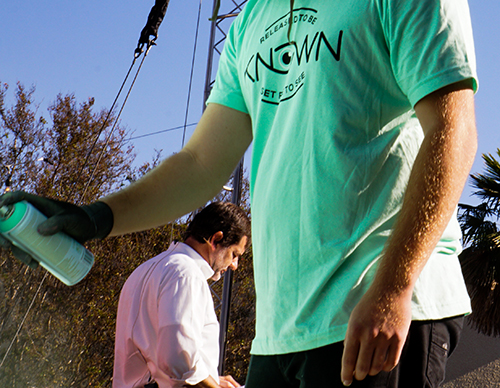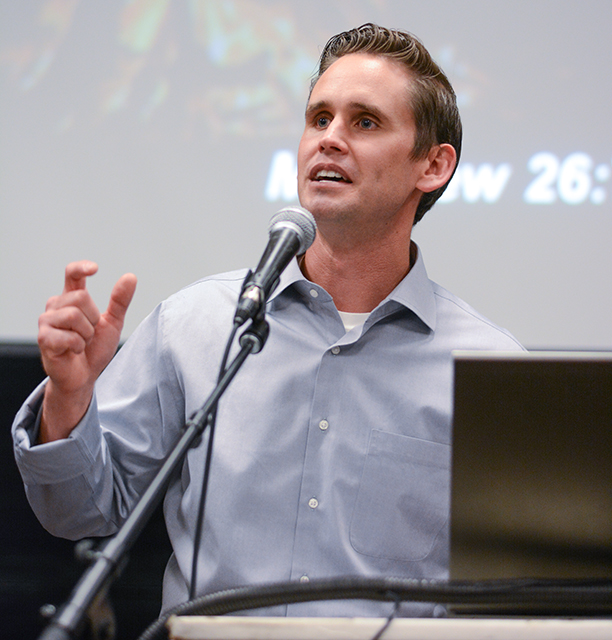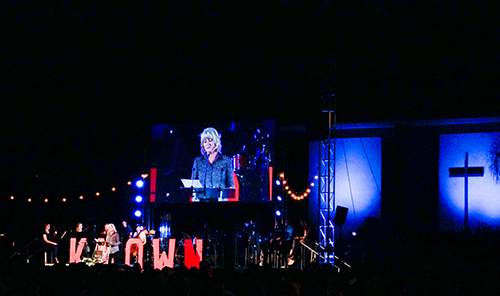Students baked in the hot sun while outside of Andrews Banquet Hall in Talbot East to attend one of the first breakout sessions of Torrey Conference 2016 titled, “Seen, Heard, and Held: Listening to Shame.” During this session, Dr. Betsy Barber delivered practical and applicable skills to aide in listening to people who have been living in shame.
Barber opened the session by asking the question, “Why even listen to somebody who is wounded by shame?” To answer her own question, Barber defined shame as a prison and being known by someone is a bridge to escape the prison. In other words, providing an ear to a person who struggles with shame stand as the best gift of healing one can ever give to them.
Barber shared three main skills of listening. To put them into practical use, she invited students to get into pairs and practice demonstrating each skill.
Barber emphasized the first skill of Attending as “paying attention to the other person and letting yourself wonder about them.” She emphasized making eye contact and observing the details and nuances of the individual. Following, she had students pair up and look at each other in silence in order to recognize the details of one another for 20 seconds. For some, this 20 second period seemed unnerving, but for others but for others the experience evolved from a partner exercise into reflective introspection.
The second skill of Inviting kept the conversation going while still focusing on the other person. Barber suggested asking who, what, where, when, and how questions. These questions allow others living in shame to give an emotional and grounded response. Rather than asking a yes or no question which can stop the conversation completely. Again Barber allowed students to practice asking each other concrete and thoughtful questions.
The third skill of Responding, Barber suggested as perhaps the most important gift that one can provide to someone who has been shamed. This step requires the listener to contemplate upon the information being shared means to the other person and what they feel about it. Offering up a statement showing the person they are listening to affirms that they truly listened and care about their hurt and shame. This can allow the person to feel known which as Barber previously stated the “bridge to escaping shame is being known.”
Throughout the entirety of the session, Barber emphasized that in order to effectively implement these skills in our lives, we must remember to listen similarly to Jesus with gentleness and kindness. Barber ended the session with the statement, “listening and praying is enough.” God will use listeners as a vessel through which He will pull the ashamed to Himself.



